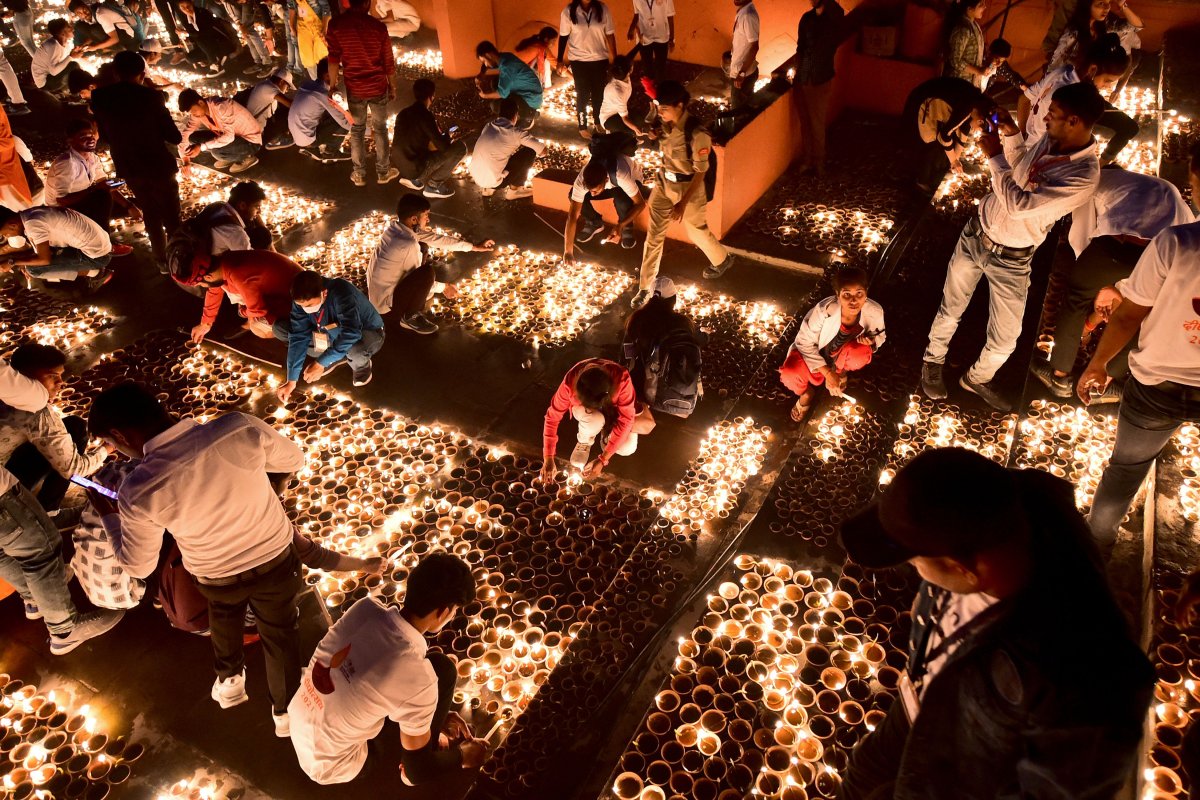Diwali, the Hindu festival of light, begins this year on October 24.
The holiday dates back more than 2,000 years, and it is usually celebrated for five days each year.
The name "Diwali" is a combination of the Sanskrit term "dīpāvalī" which means "lamps" (dīpa) "in a row" (āvalī).
The holiday is typically celebrated with the lighting of lamps, candles and often fireworks and firecrackers, as well as other forms of merriment.
In Hindu culture, light and fire are believed to ward off evil spirits.
Huge banquets, family gatherings and prayers also are part of the celebrations. Although Diwali is mainly seen as a Hindu festival, Jaines and Sikhs also celebrate it.
Fireworks are a more modern phenomenon when it comes to Diwali celebrations, first emerging in 1400 AD when gunpowder came to be used in Indian warfare, historian PK Gode said in his book History of Fireworks in India between 1400 and 1900, published in 1950.
"Fireworks are a modern phenomenon and usually in traditional Hindu/or other Indian homes the clay lamps are lit and placed in the front courtyard to mark the joyous occasion of light symbolizing optimism and hope for the future," Dr. Bihani Sarkar, departmental lecturer in Sanskrit at the University of Oxford, told Newsweek.
"But since modern times, (hard to pin down exactly when it became part of it) the festival began to include fireworks. They are not necessary, and the festival does not lose its significance in any way if they are absent."
Indeed, fireworks are a personal preference and many people believe that fireworks are not part of Diwali because of the environmental impact and those who may be sensitive to the noise, such as elders, cats and dogs.

The origin of Diwali is disputed. The most well-known story behind the celebration is in the Ramayana, one of the two important legends of Hinduism.
The story tells the story of Rama, the prince of Ayodhya who was ordered into exile by his father, King Dasharatha, and come back after living in the forest for 14 years.
Rama went into exile with his wife Sita and brother Lakshmana. But Ravana, the demon king of the island kingdom Lanka, abducted his wife and took her to Lanka.
Rama later fought against and killed Ravana, rescuing Sita and returning to Ayodhya after 14 years. Residents of Ayodhya lit up their houses with earthen lamps (dīpa), burst crackers and decorated the entire city when they found out Rama had returned home, marking the day of Diwali.
Uncommon Knowledge
Newsweek is committed to challenging conventional wisdom and finding connections in the search for common ground.
Newsweek is committed to challenging conventional wisdom and finding connections in the search for common ground.
About the writer
Jack Dutton is a Newsweek Reporter based in Cape Town, South Africa. His focus is reporting on global politics and ... Read more
To read how Newsweek uses AI as a newsroom tool, Click here.








